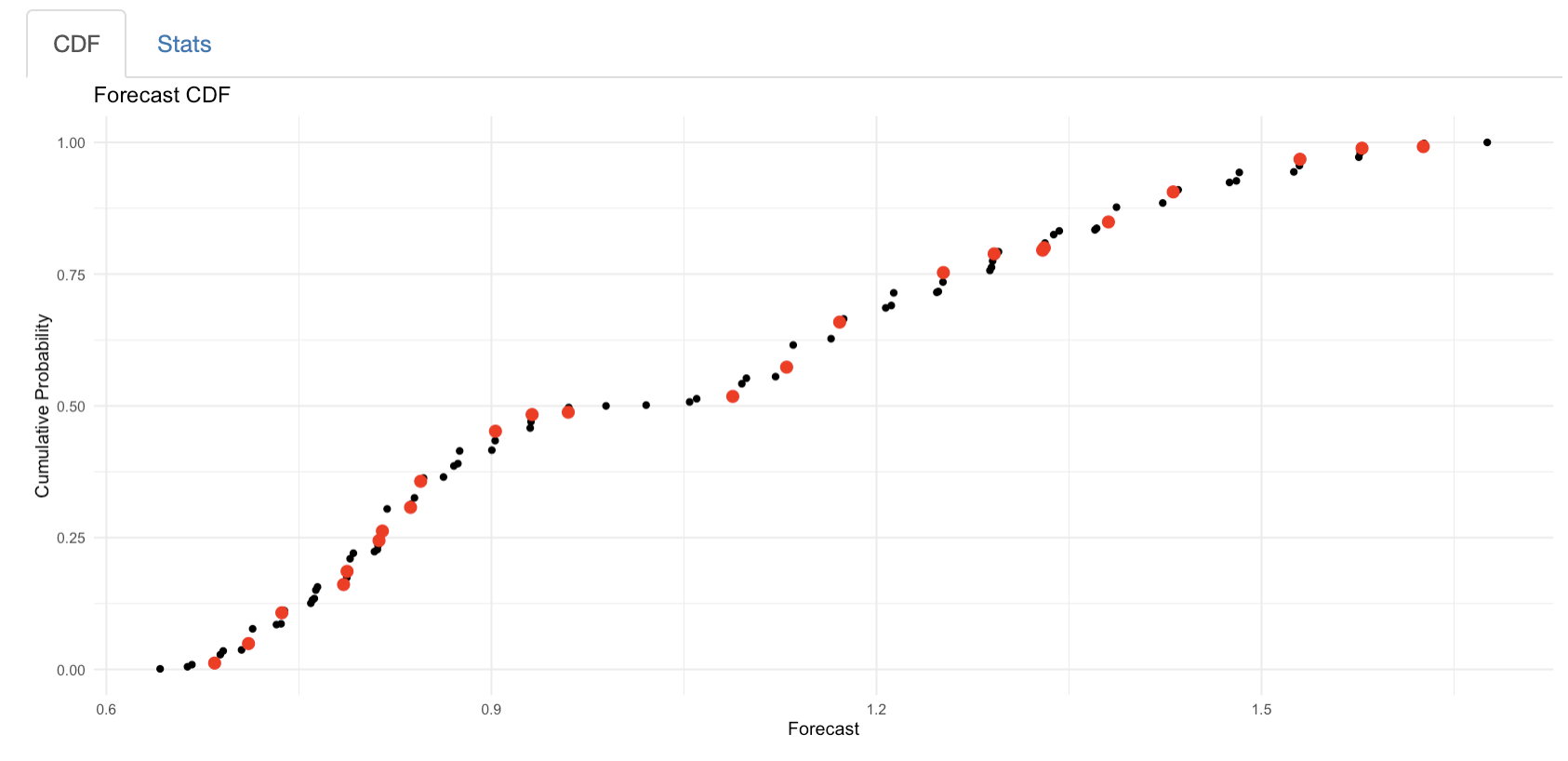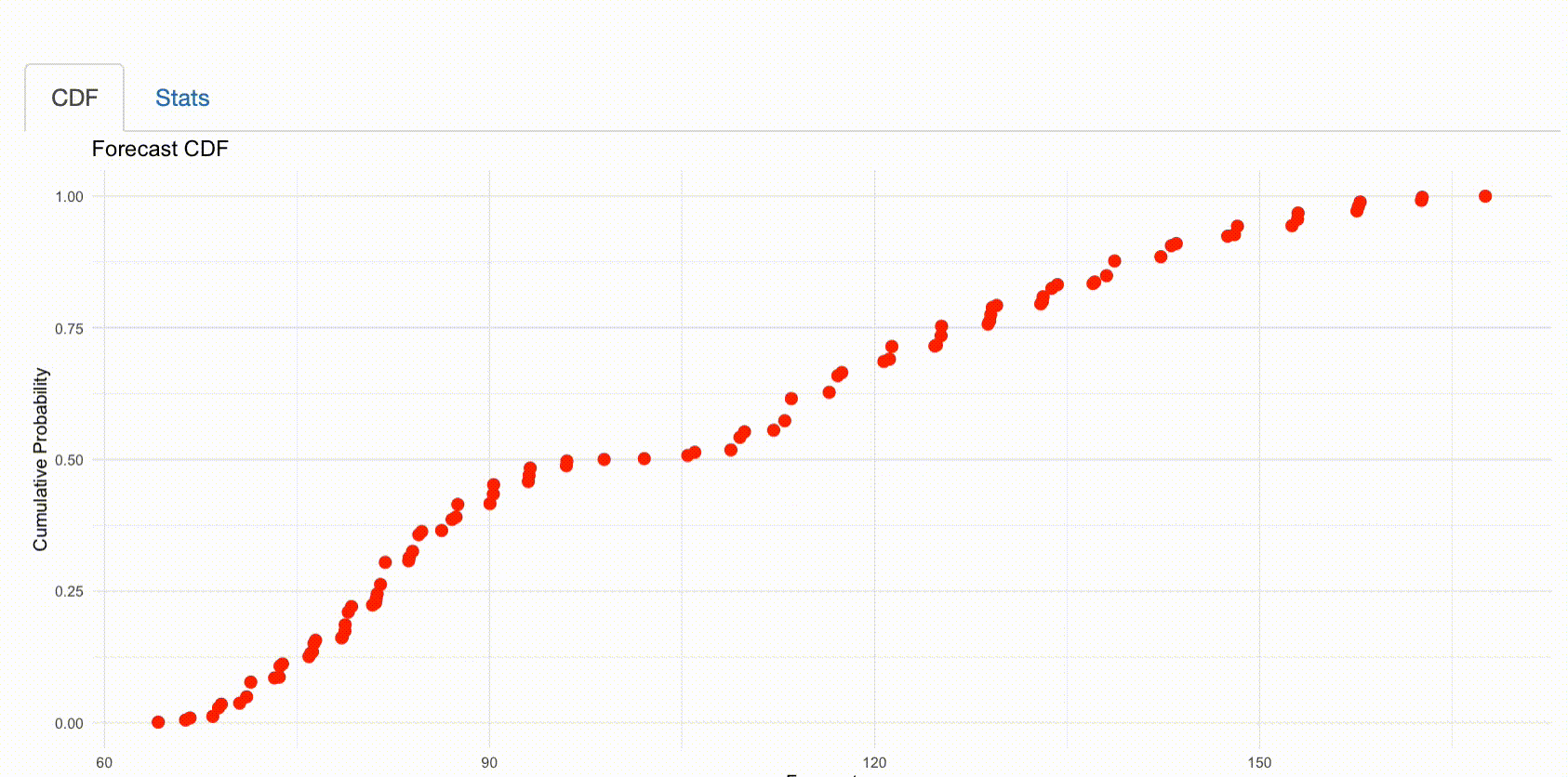Unsure

Complex models, such as those used to estimate travel demand, can take hours or even days to run. Such runtimes may be tolerable for producing single expected-value results. However, clients often request a distribution of potential outcomes that captures the inherent uncertainty of the model’s inputs. A modeler could theoretically generate such a distribution by re-running the model across all combinations of possible input values, but such an approach would likely be cost-prohibitive.
Unsure is a light-weight tool to generate a probability distribution of outputs with minimal model runs. The user runs the model for two or more values of each input variable and uploads the results as a table. A script calculates the elasticity of the dependent variable with respect to each input variable, and then represents the model in the form of a Cobb-Douglas function. In the default example, a model for transit ridership (R) is based on the employment rate (EMP), number of households (HH) and travel time (TT). The Cobb-Douglas function has the following form, where the Greek exponents are the calculated elasticities:
\[R = a * EMP^\alpha * HH^\beta * TT^\gamma\]The user then uploads a table that defines the probability distribution of each input variable. For each combination of input variables, a script calculates the probability of the scenario occurring and estimates the model output using the Cobb-Douglas function. The results are plotted as a cumulative distribution.

The user can view a slice of the results, shown as red dots on the plot, associated with a particular value of a chosen input variable.

To incorporate the analysis into a report, the user can view and export a table of the simulated results.

Unsure is completely agnostic to the model size or purpose. Keep in mind, though, that the Cobb-Douglas approximation won’t capture non-linear interactions between input variables.
